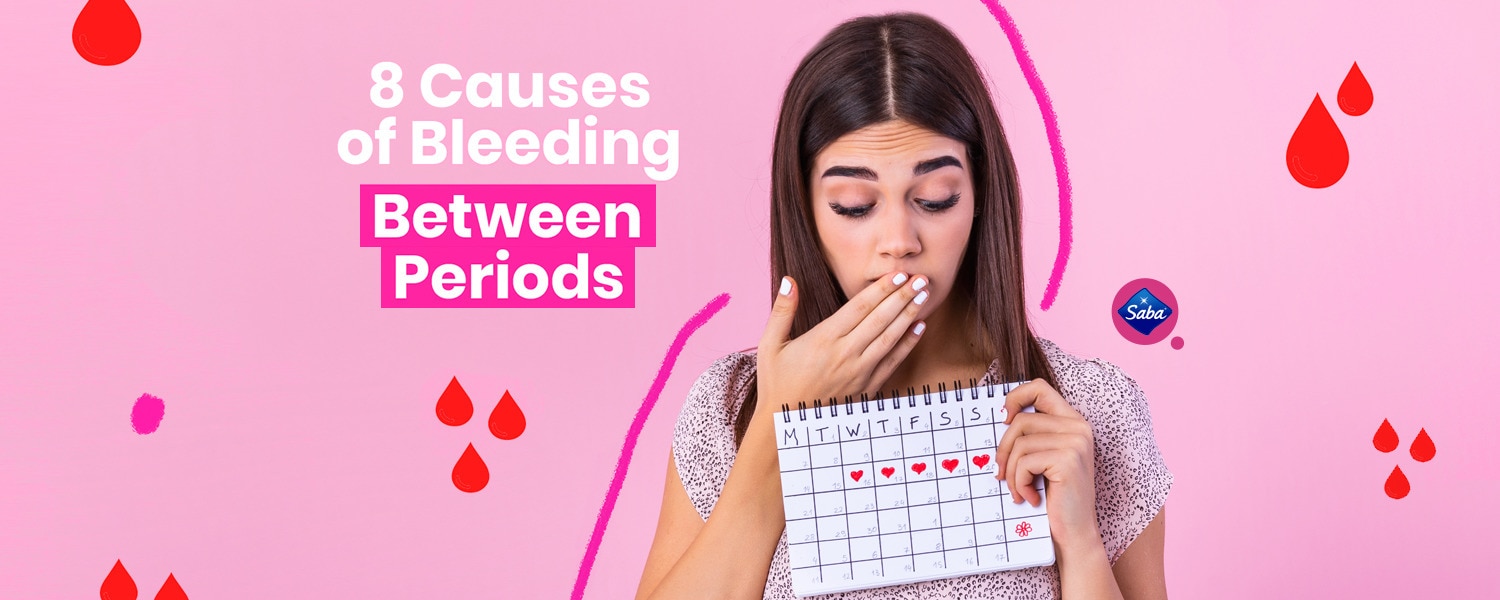8 Causes of Bleeding Between Periods

Saba® makes you feel #CómodaContigo.
We’ve already talked about factors that can make your period late, but what does it mean when you bleed between periods and your period isn’t even close to starting?
We’ll tell you all about it.
What is it?
Abnormal uterine bleeding is any vaginal bleeding that occurs between periods, it is also known as intermenstrual bleeding or metrorrhagia.
What causes it?
Lack of Maturity in the Hormonal System
After the first period, the hormonal system is not yet mature, which causes some irregularities, such as spotting between periods. This can last up to 2 years.
Hormone Imbalance
The hormones responsible for regulating our menstrual cycle are estrogen and progesterone, so you may experience some abnormal bleeding if this balance is broken. Some conditions in the ovaries, using hormonal contraceptive methods, or taking the morning-after pill are possible causes of this mismatch.
Pregnancy
Although slight spotting may be normal in the first trimester of pregnancy, complications during pregnancy can also cause bleeding. For example, in an ectopic pregnancy, which is when the fertilized egg is implanted in a fallopian tube instead of in the uterus.
Benign Growths
A growth of tissue in the cervix or uterus, such as polyps, can also trigger slight bleeding.
Injuries
The cavity of the V Zone and the cervix are areas with many blood vessels, so an injury can also cause leaks.
Infections
Symptoms of some medical condition conditions can include inflammation and bleeding. In sexually transmitted diseases (STDs), such as chlamydia or gonorrhea, the V Zone may be so sensitive or damaged that it is also prone to bleeding more easily.
Cancer
Cancer in certain organs of the V Zone can also cause bleeding, including ovarian, cervical, and uterine cancer.
Menopause
Menopause is the stage in which your period stops altogether, during perimenopause (the previous phase) you can experience hormonal changes that cause bleeding.
If you detect bleeding between periods, it is very important that you consult with your gynecologist to receive an accurate diagnosis and obtain timely treatment.
